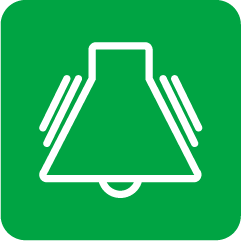- Products and Solutions
Products and Solutions
Services

Electrician School
The project offers free professional training for residents of the company's concession areas. Find out more about the course and apply for open positions.

True or false
Learn about the myths and truths about energy transition and the benefits of using an energy matrix based on renewable sources.

Vale Luz
Vale Luz is a Neoenergia project that exchanges solid waste for discounts on energy bills. In addition to reducing the energy bills, it encourages the rational use of natural resources.
News
Neoenergia is the most valuable brand in the Brazilian electricity sector
Neoenergia recycles 34 tons of photovoltaic modules from a solar park in Paraíba
Neoenergia inaugurates a new section of the Vale do Itajaí transmission line project
Neoenergia begins construction on one of the first green hydrogen supply units in Brazil
Neoenergia and the Federal Government sign a partnership to offer training and job openings to those enrolled in CadÚnico
Conectada a todo momento: nova campanha da Neoenergia reforça presença da marca no dia a dia dos clientes
Neoenergia leads among the companies that invested the most in infrastructure in Brazil last year, according to ABDIB
São João 2025: nova campanha da Neoenergia reforça segurança na rede elétrica
Neoenergia's Potencialize Program is recognized by the UN's Global Network Brazil Pact as a reference in good corporate practices
Yellow May: traffic accidents left more than 865,000 customers without electricity at Neoenergia's distributors in 2025
Neoenergia collects 44 tons of food in voluntary action for social institutions
Neoenergia uses integrated technology in a new relationship center focusing on customer experience
Neoenergia e COB anunciam parceria estratégica que posiciona esporte brasileiro como referência em sustentabilidade
Palácio da Alvorada will be 100% powered by renewable energy
Neoenergia wins Latam Prize 2025 with the 360º Voice of the Customer project
Neoenergia Institute supports an unprecedented public call for cultural projects in Recônica da Bahia
GPTW 2025: Neoenergia is among the best companies to work for in Brazil
Neoenergia achieves second place in the overall ranking of the B3 Business Sustainability Index 2024/2025
Neoenergia reports EBITDA of R$ 3.7 billion in 1Q25, up 6% from 1Q24


Neoenergia does not offer investments opportunities. Any promise of financial returns or applications made in the company's name is fraudulent.
If you have any questions, please contact us through our official channel: ri.neoenergia.com










